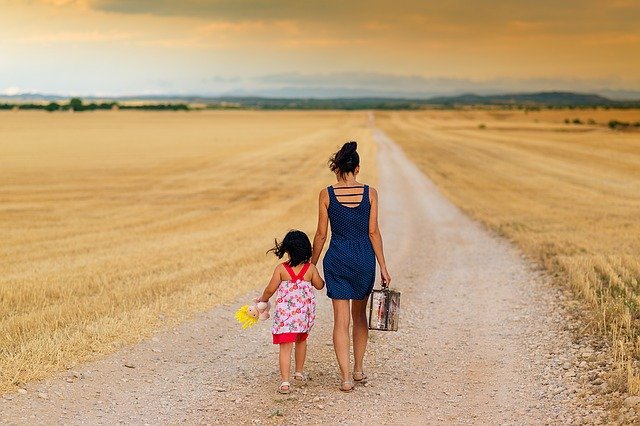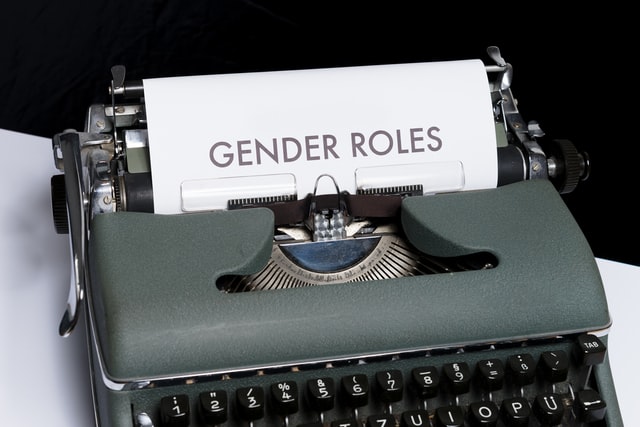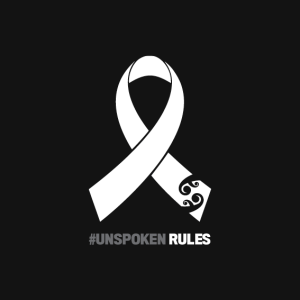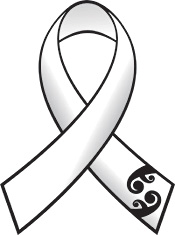White Ribbon 2020 and 16 days of activism against gender based violence
Fri 13 Nov 2020
The White Ribbon NZ campaign this year is asking people to challenge #outdated stereotypes around masculinities.
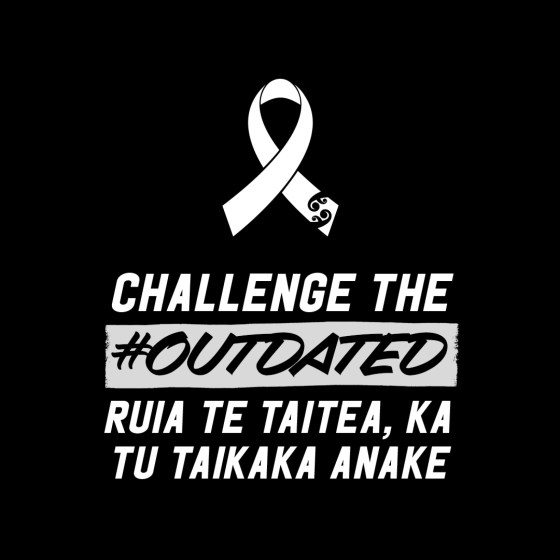
The campaign is focused on changing outdated ideas and promoting healthy masculinity and respectful relationships.
White Ribbon says that unhelpful and outdated stereotypes contribute to:
"... putting limits on how kids interact with their world and how they develop their relationships. Many men have grown up hearing these things and end up copying these unhealthy attitudes and behaviours – even if they don’t like or agree with them. At their worst, these attitudes and behaviours can lead to violence toward women. This violence affects our families, our communities, and our whole country.
So how do we change it? In all of our relationships – whānau, friends, colleagues, teammates – we can challenge the #outdated stereotypes of what it means to be a man. We can role model healthy relationships and focus on strength that comes from a kaupapa of respect and aroha. We can call each other out and encourage more kōrero about gender equality.
By challenging each other in constructive ways we become stronger, and support change for those who need it the most. It’s time to shake off the old and reveal the new."
The campaign takes three common concerning statements and rewrites them focusing on respect:
- “Show them who’s boss? YOU LOVE THEM”
- “Kids should keep quiet? BE HEARD”
- "Treat em mean EQUAL keep em keen?”
Resources and a video on this year's campaign are available from the White Ribbon website. The tip sheet What your organisation can do to support White Ribbon’s campaign to prevent men’s violence towards women lists 10 actions your organisation can take.
The White Ribbon ride this year is a virtual ride which will bring together a series of local rides. Find other White Ribbon events or list your event.
See the news stories below for resources from previous White Ribbon campaigns.
Gender attitudes, violence against women and COVID-19
Updated: The report, Masculinities and Health: Attitudes towards men and masculinities in Australia (2020) by Michael Flood was published by the Victorian Health Promotion Foundation (VicHealth).
Earlier in 2020, the National Council of Women published results from the second Gender Equal NZ Gender Attitudes Survey. The survey found that attitudes hadn't shifted from the 2017 survey - while 80% of New Zealanders agree that gender equality is a fundamental right, many people still hold beliefs and attitudes that can contribute to gender inequality.
The Unpacking the Man Box study (The Men’s Project & Flood, 2020) found that "... young Australian men’s belief in rigid masculine stereotypes has a stronger impact on whether they will use violence, sexually harass women, or experience mental ill-health themselves, than other factors including their education levels, where they live or their cultural heritage." Australia-based advocate Michael Flood wrote that the report found:
"Belief in stereotypical masculine norms among men is around 20 times more important than demographic variables in predicting the use of physical violence, sexual harassment and online bullying. Endorsement of these masculine norms is also 11 times more influential than other factors in predicting binge drinking and ten times more influential in predicting negative mood."
The Australia-based Partners in Prevention published a series of tip sheets to help explain how gender inequality drives violence against women. There are four tip sheets in the Unpacking the Gendered Drivers of Violence Against Women (2020) series.
Promundo has published the brief Masculinities and COVID-19: Making the Connections (2020). The brief explores the impact of COVID-19 on men and women in different social groups. It sets out principles and recommendations for policymakers and other decision-makers to take masculinities into account to create effective responses to the crisis. Among the key findings, the authors highlight "... the need for gender-responsive recovery plans that address the specific circumstances of women and other disadvantaged groups."
António Guterres, the UN Secretary-General, urged governments to take action globally, warning "Unless we act now, COVID-19 could wipe out a generation of fragile progress towards gender equality." The UN Special Rapporteur on violence against women spoke at the High-level meeting on the twenty-fifth anniversary of the Fourth World Conference on Women. She spoke about the need for further progress and sustained efforts to address violence against women:
"Gender based violence against women is a structural pandemic of ongoing violations of women's human rights based on unequal power relations between women and men, deeply rooted discrimination against women in law and in practice, and harmful gender stereotypes on the roles of women in society."
She went on to say:
"Today, we need to uphold the commitments contained in the Beijing Platform for Action as a universal and comprehensive global framework that should be implemented in conjunction, and in synergy, with other complementary human rights instruments, and platforms including the CEDAW Convention, and its General Recommendation 35 on gender based violence against women; the Declaration of the Elimination of Violence against Women; the SDG Agenda 2030; the Belem do Para Convention; the Maputo Protocol; and the Istanbul Convention, each of which contribute to the goals of the Beijing Platform for Action."
16 days of activism against gender-based violence
The international 16 days of activism against gender-based violence runs from 25 November (International Day for the Elimination of Violence against Women) until 10 December (Human Rights Day) each year. The 2020 UNiTE Campaign’s global advocacy theme this year is: "Orange the World: Fund, Respond, Prevent, Collect!" For more information and actions you can take, see this year’s concept note.
Related news
Update: Australia-based VicHealth published the Framing Masculinity Message Guide (2020). The Guide is designed to be a starting point in reshaping viewpoints about gender stereotypes and engaging all stakeholders.
Australia-based Our Watch has published Tracking progress in prevention: A national monitoring report on progress towards the primary prevention of violence against women and their children in Australia (2020). Along with the findings, the report outlines a new comprehensive approach to measuring and monitoring prevention efforts at a national level:
"Because the drivers of violence are complex, and the elements necessary for a successful primary prevention approach are multiple and varied, monitoring the progress of prevention at a national, population level is not straightforward. It is not as simple as monitoring prevalence rates or tracking changes in individual attitudes towards violence or gender equality. Rather, it requires a series of measures and indicators that can help assess changes to the complex and interrelated sets of social norms, practices, systems and structures that together drive and reinforce violence against women, and perpetuate gender inequality. While prevention ultimately aims to deliver a future free from violence against women, monitoring progress towards this ambitious long-term goal requires periodic assessments of change along the way; a means of measuring the smaller steps and shorter-term achievements that indicate we are heading in the right direction."
Related media
What Does It Mean To Be A Modern Man In 2021?, Press Release: Stuff, 18.01.2021
He'll Be Right: In search of the right way to be a man in 2021, Stuff, 17.01.2021
The hierarchies in NZ’s domestic violence problem, Newsroom, 07.12.2020
End gender-based violence, ‘once and for all’, UN urges on International Day, UN News, 25.11.2020
Add Your Voice Online To Support White Ribbon Day, Press Release: White Ribbon, Scoop, 25.11.2020
Campaign aims to counter 'shocking' views on violence towards women, RNZ, 15.11.2020
Zonta Says NO To Violence Against Women, Press Release: Zonta, Scoop, 03.11.2020
The pain of the patriarchy goes both ways, Newsroom, 30.10.2020
25 Years After Beijing’s Women Conference, Significance ‘undimmed’, Article: UN News, 06.09.2020
Image: White Ribbon NZ 2020 Campaign



